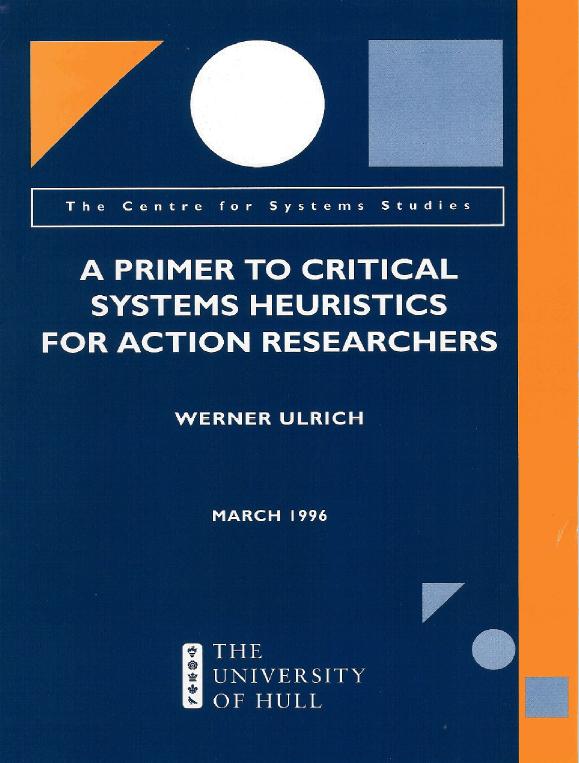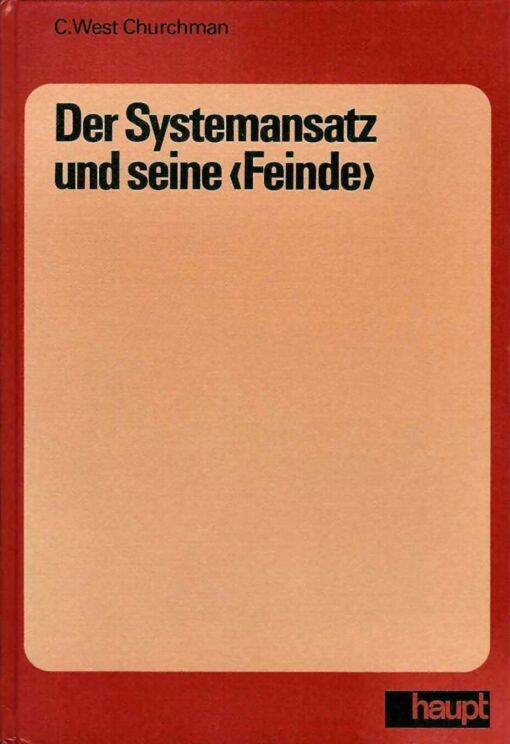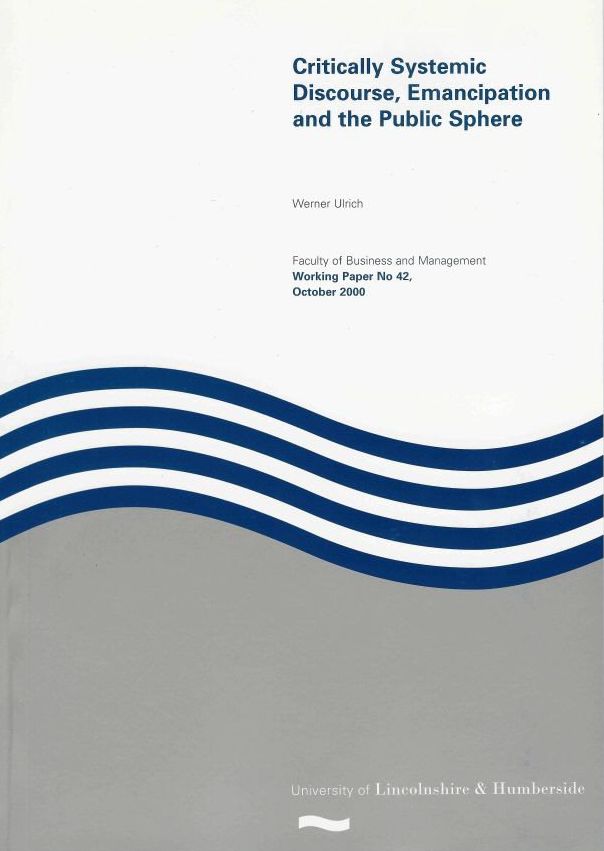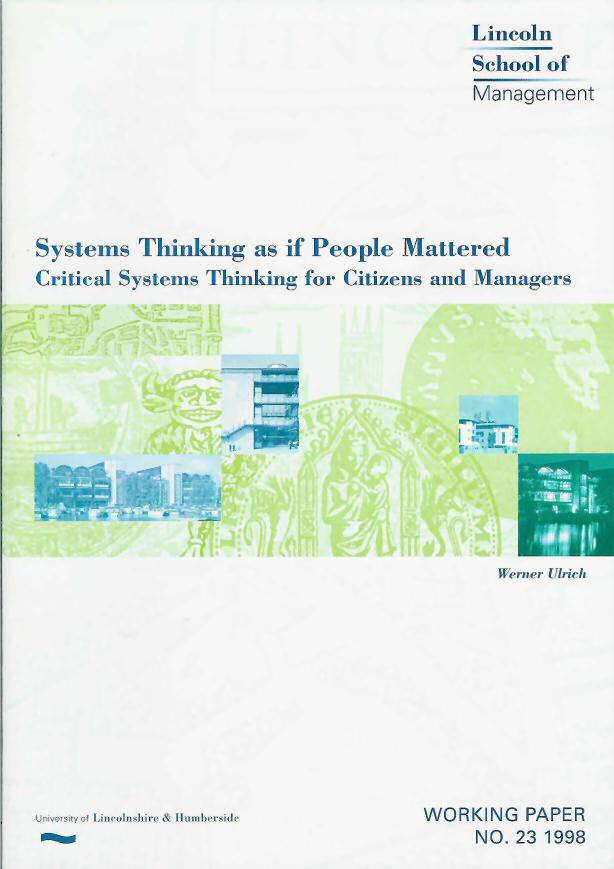Werner Ulrich's Home Page: Hard Copies
Ordering Reprints of Papers, or Hard
Copies of
Monographs Difficult to Obtain Otherwise

Hard copies available On this page, I offer hard copies of some of my publications that are out of print or for other reasons may be difficult to find. Obviously this concerns monographs (books and working papers) rather than papers published in journals or collections, although a limited number of reprints of journal papers or book chapters are also available. No commercial purpose is involved; the idea is to enable those interested to get hold of some of my writings that are now difficult to obtain.
Cost Prices for the publications as well as for shipping them to different destinations are listed at the bottom of this page. All charges are indicated in Swiss Francs (CHF) and payment will equally be required in CHF. Except for simple reprints, registered mail is recommended for all destinations outside Switzerland and is required for overseas destinations.
How to Order If you are interested in any of the hard copies offered, please email me through the link provided with each offer (on the bottom left of each article description) or through the "Contact" page of this web site, and give me the details. I will then get back to you, usually within 1-3 days.
Werner Ulrich:
A Primer to Critical Systems Heuristics for Action Researchers
First published by the Centre for Systems Studies, University of Hull, Hull, UK, 31 March 1996
© 1996 by W. Ulrich
58 pages.
ISBN 0-85958-872-6![]() Online
version of 10 August 2014
Online
version of 10 August 2014
(available
in the Downloads
section of this site, third entry from bottom of page)
Description
The Primer offers a practical introduction to the use of
Critical Systems Heuristics (CSH) in social planning or social systems
design, understood
in terms of action research. Probably one of the more easily accessible
introductions to CSH.
Extract from the Introduction "Planning often imposes solutions upon people that are not their solutions, as they had no voice in their making. This technocratic kind of planning is common. In an age dominated by one singular mode of knowledge production, that of institutionalised science, this hardly comes as a surprise. Ours is an age of the experts – and of those who can afford to pay them. What can we offer against this monopoly of knowledge and power from which ordinary people in all societies are excluded? A shared interest in this question, I think, is the common core of Action Research – particularly its strand known as Participatory Action Research – and the strand of critical systems thinking to which this Primer is dedicated, 'Critical Systems Heuristics' (CSH)." (p. 5)
Order through this link:
Table of contents
1. Action Research, Critical Systems Heuristics and Social Planning, or: The Art of Promoting Improvement
1.1. Introduction
1.2. The Art of Promoting Improvement
1.3. A Critical Path
1.4. Summary
2. The Basic Idea of Critical Systems Heuristics: The Core Concept of 'Boundary Judgments', and What it has to Do With the Art of Promoting Improvement
2.1. 'Facts', 'Values', and Boundary Judgments
2.2. Critical Systems Thinking
2.3. Summary
3. How Critical Systems Heuristics Works
3.1. The Derivation of the Critically-Heuristic Questions
3.2. The Organisation of the Critically-Heuristic Questions; a Checklist
4. A Few Comments on the Critically-Heuristic Questions
4.1. Understanding the Intent of the Boundary Questions
4.2. Understanding the Interdependence of the Boundary Questions
4.3. Understanding the Importance of the 'Is' and 'Ought' Modes
4.4. Pluralistic Evaluation
4.5. The 'Process of Unfolding'
4.6. The 'Polemical Employment of Boundary Judgments'
4.7. Tabulating Critically-Heuristic Deliberations
5. Toward a Knowledge Democracy
5.1. Critical Systems Practice
5.2. Is Critical Systems Heuristics Too 'Intellectual'?
5.3. Breaking the Monopoly – Changing the Modes of Knowledge Production
5.4. Toward Critical Action Research
5.5. Summary
6. An Invitation
7. References
C. West Churchman:
Der Systemansatz und seine Feinde
Aus dem Amerikanischen übersetzt, kommentiert und eingeleitet von Werner Ulrich
Bern, Switzerland, & Stuttgart, Germany: Paul Haupt, 1981
301 pages. ISBN 3-258-02991-1
Description
This is my German translation of West Churchman's book, The Systems
Approach and Its Enemies (New York: Basic Books, 1979). It comes
as a commented translation, with a substantial introduction
by the translator. When the publisher decided to discontinue
the book, I was offered the remaining stock at a reduced
price and am therefore able now to offer the book with a discount
of almost 50% (at CHF 42 instead of the original price of CHF 78).
Its condition is new and unused; it comes unopened in the original,
sealed, plastic wrapping.
Cover
text (extract) [in German language] "Der Systembegriff wurde von der herrschenden
empirisch-analytischen Wissenschaftsauffassung, die sich am naturwissenschaftlichen
Modell orientiert, zu einem Intrument bloss instrumenteller Vernunft
gemacht, die seinem ursprünglichen philosophischen und kritischen
Sinn widerspricht. Churchman stellt dieser szientistischen Verwendung
des Systembegriffs seinen 'dialektischen' Systemansatz gegenüber,
der seine eigene Begrenztheit reflektiert und überwindet, indem
er sich jenen Standpunkten gegenüber öffnet, die seinen Anspruch
auf Systemrationalität in Frage stellen: der politische Standpunkt,
der moralische, der religiöse, der ästhetische. Indem er den Systemansatz
dialektisch als Ansatz zur Entfaltung des unvermeidlichen Konflikts
zwischen dem Systemplaner (der vorab die Gesamtrationalität seiner
Pläne im Auge hat) und den 'Feinden' solcher Rationalität (die ihre
je eigene 'private' politische, moralische etc. Rationalität suchen)
begreift, liefert Churchman einen Beitrag zur neubelebten Grundsatzdiskussion
um die Möglichkeit und Bedeutung praktischer Rationalität im Sinne
Kants."
Order through this link:
Table of contents
Einleitung des Übersetzers: Systemrationalität und praktische Vernunft – Gedanken zum Stand des Systemansatzes
Vorwort
Kapitel 1: Über Systeme und ihre Planung
TEIL I: DER SYSTEMANSATZ
Kapitel 2: Die Tradition
Kapitel 3: Allgemeine Logik des Systemansatzes
Kapitel 4: Logik: eine Theorie der Realität, oder: Kant für Planer
Kapitel 5: Dialektik
Kapitel 6: Die Ethik des Systemansatzes
Kapitel 7: Rückblick und Ausblick
TEIL II: FEINDE DES SYSTEMANSATZES
Kapitel 8: Politik
Kapitel 9: Moral
Kapitel 10: Religion
Kapitel 11: Ästhetik
TEIL III: SINN
Kapitel 12: Negatives
Kapitel 13: Positives
Literaturverzeichnis
Anmerkungen / Kommentar
Sachregister
Personenregister
Werner Ulrich:
If Systems Thinking is the Answer, What is the Question?
Working Paper No. 22, University of Lincolnshire & Humberside (now University of Lincoln), Lincoln, UK, June 1998
© 1998 by W. Ulrich
23 pages. ISBN 1-86050-145-1
Description
This Working Paper originated in a seminar with research students
of the Lincoln School of Management on the topic of how we can develop
competence in (systems) research. The seminar was held to guide
participants towards reflection on their personal notion of competence,
both in research and professional practice. The current version
was written in order to offer further help to doctoral students
in formulating or advancing their dissertation project, or to practitioners who
wish to clarify their notion of professional competence. A considerably
expanded and reworked version was later published as "The quest
for competence in systemic research and practice" in Systems
Research and Behavioral Science, Vol. 18, No. 1 (2001), pp.
3-28. The original Working Paper may still be of interest, though,
due to its brief and easily accessible format.
Extract from the Introduction "Through your dissertation, you have to prove that your are prepared to treat an agreed-upon topic in a scholarly manner, in other words, that you are a competent researcher. Not surprisingly, then, you are eager to learn how to be a good researcher. But I suspect that few of you are quite sure what precisely is expected from you. Hence the job of 'becoming a competent researcher' is likely to sound like a tall order to you, one that makes you feel a bit uncomfortable, to say the least. What do you have to do to establish yourself as a 'competent' researcher?" (p. 1)
Order through this link:
Table of contents
Introduction
The Burden of Becoming a 'Researcher'
The Death of the Expert
The Quest for Improvement
The Primacy of Practice
The Pragmatic Maxim
Systematic Boundary Critique
Mediating Between Theory and Practice
The Critical Turn
Conclusion
References
Werner Ulrich:
Critically Systemic Discourse, Emancipation and the Public Sphere
Working Paper No. 42, University of Lincolnshire & Humberside (now University of Lincoln), Lincoln, UK, October 2000
© 2000 by W. Ulrich
52 pages. ISSN 1465-2838
Description Two basic concepts of critical systems thinking (CST) are 'discourse' and 'emancipation'. Both concepts appear to give rise to a number of confusions. In this paper the author seeks to clarify the meaning and importance of these two concepts as they are used in his Critical Systems Heuristics (CSH), in distinction to the way they are usually understood in the systems literature. Four points are made:
(1) An adequate practical conception of critical systems thinking today needs to be based on a discursive theory of critique rather than a framework of critical methodology choice.
(2) A discursive systems approach cannot be adequately conceived without considering the role of the public sphere.
(3) The much-discussed emancipatory orientation of critical systems thinking inheres in the methodological requirements of rational discourse rather than in a personal act of faith (an emancipatory commitment) on the part of the systems practitioner.
(4) Contrary to present conceptions of methodological pluralism or 'complementarism', the importance of the emancipatory orientation cannot be restricted to a subclass of problem situations and corresponding methodologies, for the emancipatory orientation is constitutive of all critical inquiry and practice.
These
critical considerations lead to a redefinition of critical systems
thinking, and to a new view of reflective professional practice
in general, as critically systemic discourse.
Extract from the Introduction "In Critical Heuristics (Ulrich, 1983) and on other occasions (e.g. Ulrich, 1988a), I have argued in detail why a shift from the conventional ‘monological’ to a dialogical or discursive (communication-theoretic, language-analytic) understanding of the systems approach was indispensable for critical inquiry and practice. This shift was inspired, in different ways, by the dialectical systems approach of C. West Churchman (1979; cf. Ulrich, 1999) and by the linguistic and communication-theoretic turn of both contemporary practical philosophy and critical social theory, particularly as represented by the theory of communicative action of Jürgen Habermas (1984, 1987). While this shift of perspective has gained support in recent years, I have the impression that its implications are not always properly understood. They concern particularly the meaning of discourse and the methodological intent of the underpinning emancipatory interest. In order to clarify these two concepts, I propose that we take present conceptions of critical systems thinking (CST) one decisive step further, towards a truly discursive understanding of CST as critically systemic discourse (Section 1.1).
A related concern about present conceptions of CST is this. Most commentators seem to ignore an essential difference that distinguishes Critical Systems Heuristics (CSH) from the discursive approaches of both Churchman and Habermas. I mean CSH’s critical turn away from a concept of rationality that depends on positive justification of validity claims, towards concentrating on the task of securing at least a critical solution to the justification problem. In this way, we can at least keep the possibility of rationally argued critique concerning the empirical and especially the normative content of all claims to rationality. As I see it, the critical turn alone can help us to avoid the holistic (and ultimately, skeptical) implications of all positive conceptions of (systemic) rationality – namely, that we would have to know everything in order to justify anything (Section 1.2)." (p. 2)
Order through this link:
Table of contents
Abstract
1 Introduction
1.1 From Critical Systems Thinking to Critically Systemic Discourse
1.2 The Critical Turn
2 Discourse and the Public Sphere
2.1 The Locus of Emancipatory Discourse
2.2 Toward an Adequate Notion of Emancipatory Discourse
3 Emancipation and Critique
3.1 Emancipatory Interest v Emancipatory Commitment: From Ideology to Methodology
3.2 Emancipatory Interest v Critique: From Shallow to Deep Complementarism
3.3 Emancipatory Interest v Other Cognitive Interests: From Multimethodology to the Unity of Critical Reason
4 Summary: Towards Critical Inquiry and Practice
4.1 The Importance of Systemic Boundary Critique – and of a Public Sphere in which it is Possible
4.2 The Importance of Emancipatory Reflection and Discourse – and of a Corresponding Methodological Status of the Emancipatory Interest
4.3 The Importance of Deep Complementarism – and of Methodological Safeguards for the Unity of Critique
4.4 The Emancipatory Potential of Critically Systemic Discourse
5 Conclusion: Critically Systemic Discourse
References
Endnotes
Werner Ulrich:
Systems Thinking as if People Mattered: Critical Systems Thinking for Citizens and Managers
Working Paper No. 23, University of Lincolnshire & Humberside (now University of Lincoln), Lincoln, UK, June 1998
© 1998 by W. Ulrich
19 pages. ISBN 1-86050-146-X
Description
This Working Paper offers a revised version of a talk that
was given to the staff and the Ph.D. students of the Lincoln School
of Management on January 16, 1997. The author's research program,
"Critical systems thinking for citizens," is explained
and discussed with special regard to its goal of contributing to
the revival of civil society. It is argued that critical systems
thinking has the potential of giving citizens a new sense of competence,
and that this new competence will also alter our notion of competent
management.
Extract from the Introduction "The idea behind my current research program is that critical systems thinking may be of interest not only to professionals but also to citizens. My topic in this paper is a bit different, though: I am interested in the project's implications for our notion of competence in management. [ … ]
The goal of Critical Systems Thinking for Citizens and Managers, then, is to develop and pragmatise systems ideas in such a way that both the so-called ordinary citizen and the average manager can use them as an aid to critical reflection. The idea is not, of course, to turn citizens into systems scholars, not any more than managers; the idea is, rather, to support them in gaining a new reflective competence as citizens and managers, respectively. The essential concern is civil society. How can we enable both citizens and managers to participate in, and contribute to, the development of a living civil society? How will this affect our notion of competent management? [ … ]
My topic, then, has something to do with my personal vision of the mission of a newly-founded management school such as Lincoln. I suggest we should see its educational mission in educating critically minded managers for a civil society, and I would like to try to explain why I think that Critical Systems Thinking for Citizens might play an important part in achieving this mission." (p. 1)
Order through this link:
Table of contents
Introduction
Reviving the Idea of a Civil Society
Toward a New Competence in Citizenship
Reviving the Systems Idea
Critical Systems Heuristics
Conclusion: Systems Thinking, Systems Management, and Citizenship
Werner Ulrich:
Critical Systems Thinking for Citizens: A Research Proposal
Talk
given to the Centre for Systems Studies on 28 November 1995
Research
Memorandum
No. 10, Centre for Systems Studies, University of Hull,
Hull, UK, March 1996
© 1996 by W. Ulrich
31 pages. ISBN 0-85958-873-4
Description
If Critical Systems Thinking is to contribute to enlightened
societal practice, e.g. with respect to the pressing environmental
and societal issues of our time, it should be accessible not only
to well-trained decision-takers and academics but also to a majority
of citizens. The point is not that Critical Systems Thinking ought
to take an advocacy stance but rather, that it has a potential to
give new meaning to the concept of citizenship; it might enable
all of us to become more responsible citizens. My question is, how
can we harvest this potential? I propose that the way in which we
seek to answer this question might constitute an important test
for the methodological viability and validity of Critical Systems
Thinking.
Extract from the Introduction "When I set out to write Critical Heuristics (Ulrich, 1983) it was 1976. There was far and wide no such thing as 'Critical Systems Thinking' (CST) – in fact not even the major contributions to soft systems thinking by Churchman (1979), Ackoff (1981) and Checkland (1981) had been published. The same holds true for the major work of contemporary Critical Theory, Habermas' (1984) Theory of Communicative Action. It was necessary to begin from scratch and to work out some fundamental philosophical and methodological ideas for what I then envisioned to become a 'critical systems approach'. It was a far way to go. It was not a primary necessity at that time to think of didactic issues, so I didn't.
But things have changed! A lot has happened since, although it took some time for Critical Heuristics to find its audience. [ … ] So here I am and talk to you about my new idée fixe, pragmatising Critical Heuristics as 'Critical Systems Thinking for Citizens'. Pragmatising Critical Systems Thinking has been a major concern of your work here in Hull recently. So I hope what I have to say about my present state of error regarding this topic is of interest to you. The first question to ask, then, is obvious: What do we mean to achieve when we seek to 'pragmatise' critical systems ideas?" (p. 2f)
Order through this link:
Table of contents
Introduction
What is "Pragmatisation" of Critical Systems Thinking?
Pragmatising Critical Systems Ideas: For Whom and With What Practical Difference in Mind?
Some Preliminary Conjectures on the Target Group "Citizens"
Pragmatising Critical Systems Ideas for Citizens – But How? What Core Ideas Offer themselves for Pragmatisation?
In What Context Might "Critical Systems Thinking for Citizens" Make a Difference?
Inquire or order through this link:
Diverse Reprints Of the following papers, a limited number of original reprints is still available for a standard handling fee of CHF 2.00 each plus postage:
Philosophy for professionals: towards critical pragmatism. Journal of the Operational Research Society, 58, No. 8 (Aug.), 2007, pp. 1109-1113. [ISSN 0160-5682] Also available on-line at http://www.palgrave-journals.com/jors/journal/v58/n8/ (restricted access).
Reply
to the comments of Ormerod: the history of ideas of CST. Journal of the
Operational Research Society, 55,
No. 11 (Nov.), 2004, pp. 1238-1241.
[ISSN 0160-5682] Also
available on-line at http://www.palgrave-journals.com/jors/journal/v55/n11/
(restricted access)
Obituary: C. West Churchman, 1913-2004. Journal of the Operational Research Society, 55, No. 11 (Nov.), 2004, pp. 1123-1129. [ISSN 0160-5682] Also available on-line at http://www.palgrave-journals.com/jors/journal/v55/n11/ (restricted access)
Beyond methodology choice: critical systems thinking as critically systemic discourse. Journal of the Operational Research Society, 54, No. 4 (April), 2003, pp. 325-342. Also available on-line at http://www.palgrave-journals.com/jors/journal/v54/n4/. [ISSN 0160-5682]
The quest for competence in systemic research and practice. Systems Research and Behavioral Science, 18, No. 1, 2001, pp. 3-28. [ISSN 1092-7026 print, ISSN 1099-1743 on-line] Also available on-line at http://www3.interscience.wiley.com/cgi-bin/jissue/76509522.
Reflective practice in the civil society: the contribution of critically systemic thinking. Reflective Practice, 1, No. 2, 2000, pp. 247-268. [ISSN 1462-3943 print, ISSN 1470-1103 on-line] Also available on-line at http://taylorandfrancis.metapress.com/ (original layout file) or at http://wulrich.com/downloads.html (prepublication version).
Critical systems thinking for citizens. Chapter 9 in R.L. Flood and N.R.A. Romm (eds.), Critical Systems Thinking: Current Research and Practice, New York: Plenum, 1996, pp. 165-178. [ISBN 0-306-4545-3]
Testament to conversations on critical systems thinking between two systems practitioners. (With R.L. Flood). Systems Practice, 3, No. 1, 1990, pp. 7-29.
Systemtheorie der Planung. In N. Szyperski (ed.), Handwörterbuch der Planung, Stuttgart: Poeschel, 1989, columns 1971-1978. [ISBN 3-7910-8020-2]
A critique of pure cybernetic reason: The Chilean experience with cybernetics. Journal of Applied Systems Analysis, 8, 1981, pp. 33-59. [ISSN 0308-9541]
The metaphysics of design: a Simon-Churchman debate. Interfaces, 10, No. 2, 1980, pp. 35-40. [ISSN 0092-2102]
The design of problem-solving systems. Management Science, 23, No. 10, 1977, pp. 1099-1108. [ISSN 0025-1909]
Other papers Many papers listed in the list of publications but not here can be downloaded as PFD files from the "Download" page of this site. In cases where neither a PDF file nor an original hard copy is available, photocopies can be made available upon special request.
|
Prices and shipping rates for hard copies For shipping destinations outside Switzerland, Registered Mail (recommended), all charges in CHF = Swiss Francs |
|||
|
Do not hesitate to contact me for any queries you may have about shipping options |
|||
|
Shipping
option |
Priority Mail |
Economy Mail |
Priority Mail |
|
Destination
|
within Europe |
within Europe |
overseas |
|
|
CHF |
CHF |
CHF |
|
Primer |
9.00 |
9.00 |
9.00 |
|
Postage (Swiss Post) |
6.50 |
4.50 |
8.80 |
|
Registration (Swiss Post) |
6.00 |
6.00 |
6.00 |
|
Handling & package |
2.00 |
2.00 |
2.00 |
|
Total amount in CHF |
23.50 |
21.50 |
25.80 |
|
|
|
|
|
|
Churchman, Systemansatz |
42.00 |
42.00 |
42.00 |
|
Postage (Swiss Post) |
20.00 |
12.00 |
33.00 |
|
Registration (Swiss Post) |
6.00 |
6.00 |
6.00 |
|
Handling & package |
2.00 |
2.00 |
2.00 |
|
Total amount in CHF |
70.00 |
62.00 |
83.00 |
|
|
|
|
|
|
Diverse working papers |
4.00 |
4.00 |
4.00 |
|
Postage (Swiss Post) |
6.50 |
4.50 |
8.80 |
|
Registration (Swiss Post) |
6.00 |
6.00 |
6.00 |
|
Handling & package |
2.00 |
2.00 |
2.00 |
|
Total amount in CH |
18.50 |
16.50 |
20.80 |
|
|
|
|
|
|
Reprints of journal papers |
1.00 |
1.00 |
1.00 |
|
Postage (Swiss Post) |
2.40 |
2.00 |
3.50 |
|
Total amount in CHF |
3.40 |
3.00 |
4.50 |
|
|
|
|
|
|
Note: For multiple orders, postage, registration and handling fees apply only once; |
|||
|
postage will depend on total weight. |
|||
![]()
Last
updated 10 Aug 2014 (first published 16 Aug
2003)
Layout last modified 9 Dec 2009
http://wulrich.com/offers.html






